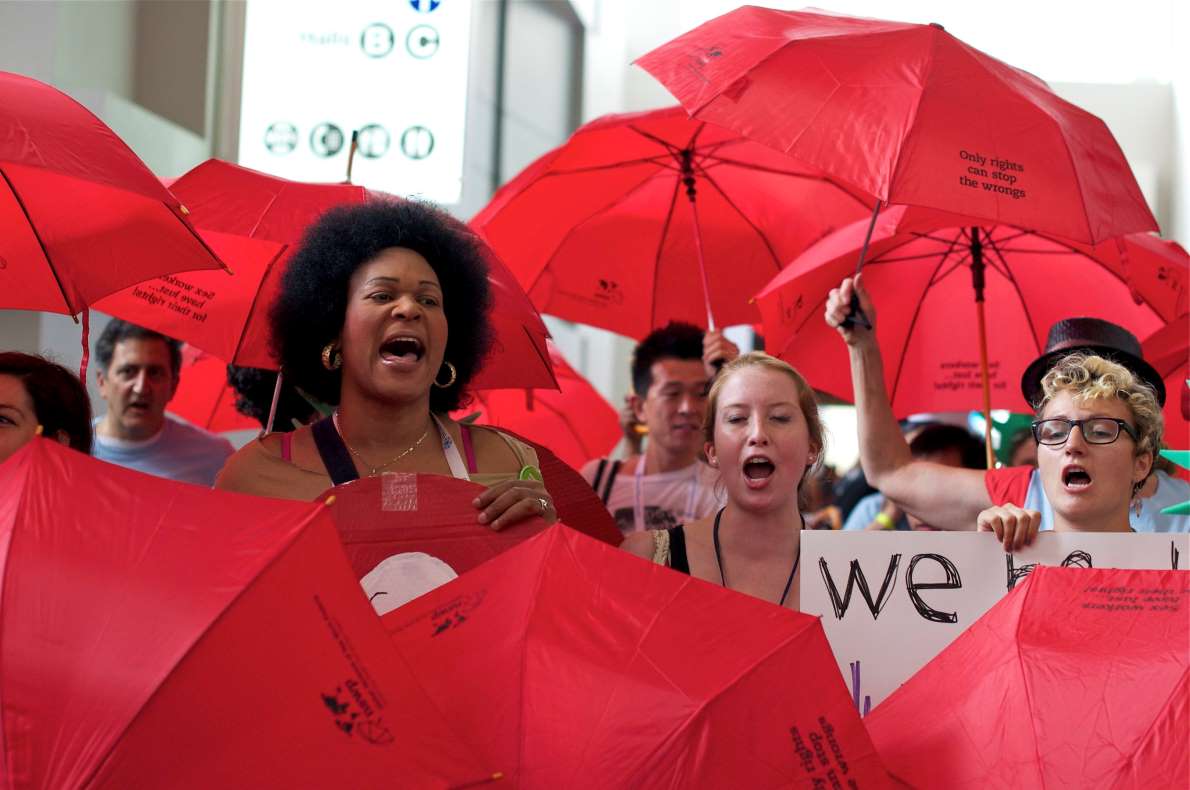TGEU and ESWA Urge States to Decriminalise Sex Work

Discrimination, abuse, harassment and violence are distressingly common experiences for the trans and gender-diverse community. We often face, from a young age, stigma, discrimination, and social rejection in our homes and communities for expressing our gender identity. This early rejection can lead to violence, victimisation, and criminalisation, preventing us from accessing employment, healthcare, housing, and other needs.
Trans people are often pushed to sex work in order for us to make ends meet. We put our lives at risk because, more often than not, that is the only option we have to provide for ourselves in a society that has pushed us to the margins. As we work in the streets, brothels, homes, we are subjected to high levels of violence. Trans women who have intersecting identities like race, migration background, disabilities, are even more likely to face this violence. The data on this is very clear: according to TGEU’s Trans Murder Monitoring update 2021, 58% of the 375 trans and gender-diverse people reported to have been murdered in the past year and whose occupation is known were sex workers. To make matters worse, trans sex workers have no legal protections when states choose to criminalise sex work.
Laws that criminalise sex work push the industry underground, which makes it more dangerous. Sex workers face high rates of violence because clients assume they can assault or rob them and get away with it. They take advantage of the fact that sex workers are afraid of reporting for fear of what will happen to them. If they call the police, they could be arrested for selling sex or face deportation if they are undocumented. They also could be abused and raided by the police.
As of early 2022, three countries in the EU observe a strict ban on sex work, criminalising both the buyers and sellers, with France, Ireland, and Sweden following the so-called Nordic model of neo-abolitionism which makes soliciting sex workers illegal. Sex work is legal and regulated in Austria, Germany, Greece, Hungary, Latvia, Netherlands, and Switzerland; however, these legal models generally leave trans and gender non-conforming sex workers out of legality. The Australian states of New South Wales and Victoria, Belgium, and New Zealand are some of the few jurisdictions around the world who have listened to sex workers’ demands. They have realised that only rights can fix the wrongs.
As trans advocates and activists, we should embrace and support sex work decriminalisation and recognition as work.
On this International Sex Workers Day, TGEU and ESWA urge states to decriminalise sex work.